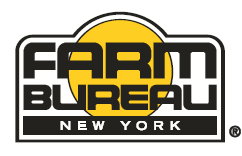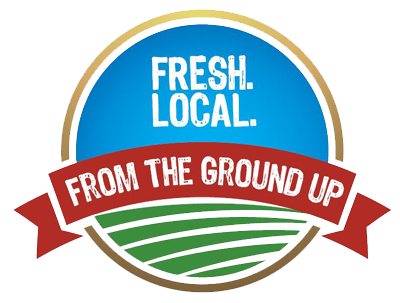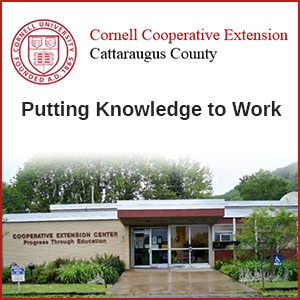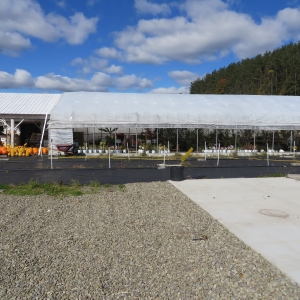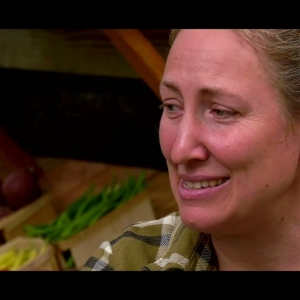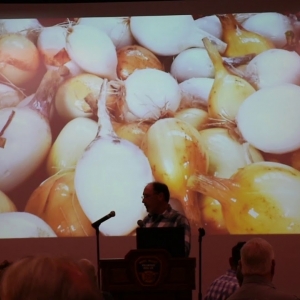Other Ag News:
Release: Bipartisan Senate Bill Boosts Local Farmers and Expands Access to Healthy Food for Families
FOR IMMEDIATE RELEASE
Contact: Laura Zaks
National Sustainable Agriculture Coalition
press@sustainableagriculture.net
Tel. 347.563.6408
Release: Bipartisan Senate Bill Boosts Local Farmers and Expands Access to Healthy Food for FamiliesWashington, DC, July 22, 2025 – On Friday, July 18, Senators Jack Reed (D-RI) and Jim Justice (R-WV) introduced the Strengthening Local Food Security (SLFS) Act of 2025 (S. 2338). The SLFS Act would catalyze new market opportunities for local farmers and food businesses while providing nutritious foods to communities in need. The National Sustainable Agriculture Coalition (NSAC) applauds Senators Reed and Justice for offering a bipartisan solution that readies producers with reliable markets, allowing them to invest and expand their operations.
“The US Department of Agriculture (USDA) purchases billions of dollars of food annually for federal nutrition programs, yet these purchases are mostly made from a small number of the largest businesses. By localizing purchasing decisions, buyers can work with farmers based on both their existing scale as well as the needs of the community. The Supporting Local Food Systems Act would create local channels that allow for small, mid-size, and beginning farmers to successfully secure contracts in federal nutrition programs,” said Hannah Quigley, NSAC Policy Specialist, in response to the bill’s introduction.
“The recent growth in local supply chains has demonstrated real economic benefits for agricultural communities. Farmers are establishing new relationships with institutions, diversifying their wholesale farm revenue, and investing in on-farm infrastructure to meet this new demand,” Quigley added.
The SLFS Act creates a pathway for USDA to enter into cooperative agreements with states and tribal governments to purchase locally grown and raised foods from small, mid-sized, beginning, veteran, or underserved fishers, farmers, and ranchers for distribution in school nutrition and community food assistance programs. These agreements will strengthen the burgeoning relationships between local producers and institutions. The bill also includes support for technical assistance initiatives to support farmers in food safety planning, training, and upgrades required to scale to new commercial wholesale markets.
“The double impact of this initiative puts more healthy, local foods on students’ plates, while getting more dollars directly to producers. It’s an important step toward making sure federal child nutrition programs can be market channels that strengthen the resilience of our supply chain in each community,” commented Karen Spangler, Director of the National Farm to School Network, an NSAC member.
Find more details in the bill text.
###
About the National Sustainable Agriculture Coalition (NSAC)The National Sustainable Agriculture Coalition is a grassroots alliance that advocates for federal policy reform supporting the long-term social, economic, and environmental sustainability of agriculture, natural resources, and rural communities. Learn more: https://sustainableagriculture.net/
The post Release: Bipartisan Senate Bill Boosts Local Farmers and Expands Access to Healthy Food for Families appeared first on National Sustainable Agriculture Coalition.
(Washington, D.C., July 21, 2025) – U.S. Secretary of Agriculture Brooke L. Rollins today in Florida met with agricultural leaders and producers and announced additional U.S. Department of Agriculture (USDA) assistance to help producers recover from Hurricanes Idalia, Debby, Helene and Milton. Secretary Rollins signed a block grant agreement with the Florida Department of Agriculture and Consumer Services (FDACS) that provides recovery assistance for Floridian farmers.
FOR IMMEDIATE RELEASE
Contact: Laura Zaks
National Sustainable Agriculture Coalition
press@sustainableagriculture.net1
Tel. 347.563.6408
Release: Strong Farms, Strong Futures Act IntroducedWashington, DC, July 18, 2025 – On Wednesday, Representatives Lauren Underwood (D-IL) and Zach Nunn (R-IA) introduced the Strong Farms, Strong Futures Act. This bill directs NRCS to establish region and production-specific climate change mitigation bundles within CSP. This expands options available to producers and increases financial support for practices that improve climate resilience and provide additional benefits like increased soil health and water quality. These incentives will help producers expand their climate stewardship and empower more producers to be leaders of America’s ongoing efforts to build innovative conservation systems.
“The Strong Farms, Strong Futures Act provides ever greater producer choice in the Conservation Stewardship Program. This bill strengthens CSPs ability to provide robust cost-share for producers building complex, innovative conservation systems on their farms, conservation systems that will make them more resilient, profitable, and ecologically sound.” – Jesse Womack, Conservation Policy Specialist at NSAC.
The SFSFA builds on previous legislation introduced by Underwood, creating even more options for producers in CSP. The bill provides increased cost-share for important climate and conservation production systems, focusing the highest levels of cost share on producers doing the most complex conservation work within their operation. This bill ensures that producers who accept the risk of leadership in their conservation efforts are eligible for the highest levels of federal support.
###
About the National Sustainable Agriculture Coalition (NSAC)The National Sustainable Agriculture Coalition is a grassroots alliance that advocates for federal policy reform supporting the long-term social, economic, and environmental sustainability of agriculture, natural resources, and rural communities. Learn more: https://sustainableagriculture.net/
The post Release: Strong Farms, Strong Futures Act Introduced appeared first on National Sustainable Agriculture Coalition.
What does it take to grow mushrooms indoors? To answer this question, our agroforestry and mushroom specialist, Connor Youngerman, takes podcast listeners on a tour of Queens, venturing into nondescript buildings and ducking into basement hatches to discover the innovative world of indoor mushroom production. On the most recent episode of Small Farms Radio, Youngerman learns how some growers in the big city are producing mushrooms from “spore-to-table” and every step in between.
Small Farms Radio · Episode 6 – Fungi on the FarmThe first stop was to meet Louis Vassar, a self-described amateur mycologist. Youngerman met him at Biotech without Borders, a community biology lab in Long Island City, Queens. This unassuming building serves as a “makerspace” for microbiologists. Vassar uses tools and techniques from microbiology to produce mushroom spawn, the foundational material used to inoculate substrates to grow mushrooms. Spawn are clones of existing strains of mushroom mycelium. Vassar works under a flow hood, which creates a sterile bubble to keep competitors in the air away from the freshly made spawn and substrate. The spawn created in Vassar’s lab are sold and used by small-scale mushroom growers.
In the next step of his journey, Youngerman met Smita and Ithu Chakma, owners of Big Apple Fungi in Forest Hills, Queens. He followed them down a basement hatch to find a space alive with racks of inoculated mushroom blocks and a multitude of different varieties of fruiting mushrooms in climate-controlled tents. Together, the Chakmas produce 250 to 300 pounds of mushrooms every week, focusing on varieties rarely seen in grocery stores.
The final stop is Cam’s Urban Farm, a compact and efficiently designed basement grow operation run by Cam Bremner. As the solo operator, Bremner has engineered his setup to maximize output using minimal space. He walks Youngerman through his streamlined process, from producing spawn to selling mushrooms directly to local restaurants.
“I can grow 300 pounds of mushrooms a week out of 850 square feet of space, that kind of output is just completely unheard of in any [other] farming,” Bremner said. He views urban farming as a core principle of his work and he believes it is the future of agriculture.
“Every single farm that I visited is different and there’s so much creativity that gets embedded into every step in growing mushrooms,” Youngerman told podcast host Jamie Johnson as he reflected on his trip to Queens. “I came away just in awe of how creative and diverse and accessible mushroom farming can be — and that delights me.”
If you’re curious about growing mushrooms yourself, visit the Cornell Small Farms Program’s Specialty Mushrooms project page. It is a clearinghouse for mushroom resources, PDF guides, and online courses.
Youngerman also has some advice for beginning mushroom growers. Before diving into full-scale production, first try a ready-to-fruit block. See if you enjoy growing mushrooms and, more importantly, eating them.
The post Fungi on the Farm: Small Farms Radio Explores Indoor Mushroom Production appeared first on Cornell Small Farms.
(Washington, D.C., July 17, 2025) – U.S. Secretary of Agriculture Brooke L. Rollins today announced the U.S. Forest Service is awarding $80 million in Wood Innovation Grants to spur wood products manufacturing, expand active forest management, and accelerate energy innovation across America’s timber-producing communities.
WASHINGTON, July 17, 2025 — The U.S. Department of Agriculture’s Foreign Agricultural Service (FAS) is now accepting applications for its upcoming agribusiness trade mission to Mexico City, Mexico, scheduled for November 3–6. U.S. exporters interested in exploring trade opportunities in Mexico’s dynamic agricultural market must apply by Thursday, July 31, 2025.
On July 4, 2025, President Trump signed the One Big Beautiful Bill Act (OBBB, P.L. 119-21) into law. Spanning nearly 900 pages of legislative text, OBBB relies on draconian cuts to the American social safety net – including Medicaid and the Supplemental Nutrition Assistance Program (SNAP) – in order to fund an extension of 2017 tax cuts that will disproportionately benefit the wealthiest Americans.
While it is possible to cherry-pick certain provisions of OBBB that seem or may in fact be positive, the bill’s fundamental calculus – that it is ok to spite your neighbor if it puts you ahead – is deeply un-American. This is not who we are, or if it is who we are, it is not who we should be.
OBBB is antithetical to the National Sustainable Agriculture Coalition’s (NSAC) vision for a better food and farm system. The food and agriculture provisions of OBBB closely mimic the bill’s larger theme. The bill slashes SNAP benefits by nearly $186 billion – taking food off the plates of hungry children, seniors, and veterans – and directly reinvests more than $50 billion of that to further increase farm subsidies to the largest, wealthiest farmers, while programs that support the vast majority of farmers and rural communities are excluded from the bill entirely.
The remainder of this blog post offers an in-depth analysis of the process and key food and farm components of the final enacted version of OBBB.
ProcessThe journey toward passage of OBBB began in earnest following the November 2024 federal elections. The election outcome delivered a “trifecta” for the Republican party, giving them majority power in the House of Representatives and Senate, along with the White House. However, the Republican majority totaled only 53 votes in the Senate, where 60 votes are needed to pass most legislation. This meant that Republicans would still need Democratic support in the Senate for most legislation, with the one exception being budget reconciliation.
The budget reconciliation process, an optional budget procedure that can alter spending, revenues, and the federal debt limit, was first established in the late 1970s and has been used dozens of times by both political parties since 1980. Reconciliation has primarily been used to cut federal spending, with one notable recent exception being the Inflation Reduction Act in 2022. Since the establishment of reconciliation, federal programs within the jurisdiction of the Congressional Agriculture Committees have been consistently targeted for cuts – through budget reconciliation, cuts to farm bill programs were made in 1982, 1987, 1989, 1990, 1993, 1996, and 2006. The scope of reductions in these past instances pales in comparison to those included in the final-passed OBBB.
In April 2025, the House and Senate adopted dueling budget resolutions, which served to kickstart the budget reconciliation process. The House resolution called for at least $230 billion worth of cuts to programs within the jurisdiction of the House Committee on Agriculture, while the Senate resolution called for at least $1 billion in cuts to programs within the jurisdiction of the Senate Agriculture Committee. In mid-May 2025, the House Committee on Agriculture unveiled and approved its budget reconciliation bill that slashed $294 billion from SNAP. In June 2025, the Senate released its version of the OBBB, cutting billions from SNAP, though not as drastically as the House version. However, the Senate’s bill closely mirrored the House’s approach to farm subsidies.
Following approval by the House and Senate Agriculture Committees, OBBB moved through congressional consideration, where the agriculture provisions originally introduced by those committees remained largely intact. The SNAP provisions in the bill were modified somewhat significantly by the Senate in the 11th hour in order to gain key Republican support, but the scope of cuts was not moderated at all. On July 1, the Senate voted 51-50, with Vice President J.D. Vance casting the tie-breaking vote, to approve an amended OBBB. On July 3, merely forty-eight hours later, the House of Representatives took up the Senate-amended version of OBBB, voting 218-214 to approve the bill and sending it to the President’s desk.
Key NotesFor the closest observers of federal food and agriculture policy, there are two aspects of the bill that NSAC has been closely tracking: a provision known as the “suspension of permanent law” and the resultant budget sequestration required following the enactment of OBBB.
Sequestration
A sequester is the term used to describe an “automatic cancellation of previously enacted spending,” which makes funding cuts to nonexempt programs, activities, and accounts. Currently, sequestration is enforced through three laws: the Fiscal Responsibility Act of 2023, the Budget Control Act of 2011, and the Statutory Pay-As-You-Go Act of 2010 (PAYGO). In particular, PAYGO prevents “new revenue and mandatory spending legislation enacted during a session of Congress from increasing the net deficit”. If legislation is enacted that increases the net deficit, PAYGO “automatically [reduces] spending to achieve the required deficit neutrality”.
According to the Congressional Budget Office (CBO) – a federal agency that provides Congress with objective, nonpartisan analysis of budgetary and economic issues – the enacted OBBB will increase federal deficits by $3.4 trillion between 2025-2034. By definition, this would trigger PAYGO sequestration in order to maintain deficit neutrality.
In May 2025, as CBO analyzed the House-passed OBBB, it had this to say:
After accounting for the reduction in Medicare spending, the required reduction in spending for other programs would exceed the estimated amount of resources available to those programs in each year over the 2027–2034 period. If [the Office of Management and Budget] sequestered all of the funding for those programs, the total amounts would be less than the reductions required by S-PAYGO.
In layman’s terms, OBBB increases the federal deficit so significantly that the size of the required sequestration would be larger than the programs subject to sequestration, meaning that unless sequestration is waived altogether, numerous USDA programs subject to sequestration would be completely wiped out for a period of time. USDA programs subject to sequestration span the Department and include, but are not limited to, those in the following agencies:
- Office of the Secretary
- National Institute of Food and Agriculture
- Agricultural Research Service
- Animal and Plant Health Inspection Service
- Agricultural Marketing Service
- Risk Management Agency
- Farm Service Agency
- Natural Resources Conservation Service
- Food and Nutrition Service
- And more …
CBO outlines several options to avoid this catastrophe, including subsequent legislation that would offset the deficit increase, waiving the recordation of the bill’s effects on the scorecard, or mitigation or elimination of the statutory requirements. Congress must waive the PAYGO sequestration resulting from the passage of OBBB or risk eliminating funding for dozens of programs crucial to farmers and the communities they call home.
Suspension of Permanent Law
One provision that was considered for inclusion in OBBB is known as the “suspension of permanent price support authority” or, more simply, the suspension of permanent law. This provision was included in the House-passed version of OBBB as well as the initial Senate-introduced version of OBBB.
What exactly is the suspension of permanent law? Historically, most farm bill programs have the same authorization date, which is another way to say that, with a few exceptions, the farm bill legally allows most programs to operate within the same time window. The expiration of that window is what prompts a new farm bill.
If the suspension of permanent law provision had been included in the enacted OBBB, it would have effectively created two sets of authorization dates for “farm bill” programs. Some programs would have been authorized through 2031, while the rest of the farm bill programs would have had an authorization that runs through September 30, 2025. This would have left two sets of farm bill programs on different reauthorization timelines, making it more challenging than ever to extend the farm bill. Thankfully, however, this provision was excluded from the enacted version of OBBB after it failed to pass the Senate’s Byrd Rule Test.
There have been many questions about what the exclusion of this provision means for the future of the farm bill. The short answer is that the provisions’ exclusion from OBBB does not meaningfully move the needle toward accomplishing a farm bill anytime soon. Getting a farm bill done is an exceedingly complicated equation that cannot be solved with a single provision. However, it is nonetheless positive that the suspension of permanent law provision was excluded because it more or less keeps commodity programs on the same “reauthorization” timeline as many farm programs across other titles – from rural development, horticulture, and research to miscellaneous and the Conservation Reserve Program. This is important because it will likely make it easier to accomplish a farm bill extension while also going a long way towards ensuring that OBBB is not the farm bill because Congress will now be forced to stave off a reversion to permanent law each year. For the majority of farm bill programs, it is fundamentally important that Congress pass an extension of the 2018 Farm Bill by September 30, 2025 or December 31, 2025 at the very latest, in order to prevent those programs’ lapsing. Stay tuned to NSAC’s blog for more on this soon.
Detailed OBBB AnalysisSupplemental Nutrition Assistance Program (SNAP)
The final law reflects a number of changes to the originally proposed provisions for the Supplemental Nutrition Assistance Program, while still maintaining its primary focus on restricting future updates to the Thrifty Food Plan, adjusting participation requirements, and requiring historical and significant cost sharing from states. The implementation timeline of the changes in Subtitle A (Nutrition) varies across provisions and is noted accordingly.
The final law limits future updates to the Thrifty Food Plan, which is the calculation used to define the value of groceries for SNAP participants. However, no updates are allowed before October 1, 2027, and any future update must remain cost-neutral. Additional flexibilities to adjust the value of benefits based on household size have been defined in statute for the first time (Section 10101).
The proposed state cost-share requirements created significant controversy within the Senate and were initially challenged by the Parliamentarian. The final law requires states to cover more of the administrative costs of the program, increasing the state’s share from 50% to 75%, taking effect October 1, 2027 (Section 10106). It also establishes a new state match requirement for the cost of the food benefit based on the state’s payment error rate (Section 10105). If states maintain a payment error rate less than 6%, the entirety of the cost of the food benefit is covered by federal funding. According to analysis from the Center on Budget and Policy Priorities, only one state has achieved a payment error rate below 6% since 2003. Therefore, it is expected that almost all states will be faced with new annual costs. As a state’s payment error rate increases, the required state funding contribution increases incrementally. If the error rate is:
- greater than 6% but less than 8%, the state contributes 5%.
- greater than 8% but less than 10%, the state contributes 10%.
- greater than 10%, the state contributes 15%.
To put this into perspective, North Carolina had a 10.21% payment error rate in FY2024. This would put them in the highest contribution category, and it is estimated it would cost the state $438 million to continue at the current SNAP benefit levels.
The new cost share requirements for states go into effect on October 1, 2027; however, they can be further delayed if the state has an exceptionally high payment error rate. To determine the state’s initial cost share, they will choose the payment error rate from either fiscal year (FY) 2025 or FY2026. Beyond FY2028, states will use the payment error rate for the third preceding year; for example, for FY2029, the state’s payment error rate for FY2026 will be used to determine the cost share requirements.
All states are bracing for the new state cost share requirements. They will inconsistently affect food-insecure families with disproportionate impacts in states with higher levels of poverty, only exacerbating existing inequities. However, the final law includes a number of provisions that will almost immediately restrict access to food benefits and nutrition education. One in particular is the elimination of the National Education and Obesity Prevention Grant program, often referred to as SNAP-Ed. These programs coincide with the provision of SNAP benefits to encourage nutritious food choices. Their implementation can reflect the unique geographic and cultural needs within a state, often equipping families with the knowledge and skills to prepare nutritious and unfamiliar foods, providing nutrition education and how to cook with their health in mind, and encouraging shopping at local farmers markets. Many changes to SNAP have timelines that allow for a transition period; however, this elimination will take effect beginning October 1, 2025 (Section 10107).
Other changes to SNAP will restrict who can receive benefits and how much they can receive. These include changes to work requirements, how states can be exempted from those requirements, and how household income and expenses are determined, all of which can take effect immediately (Sections 10102, 10103,10104, and 10108).
Taken altogether, the changes to SNAP will undoubtedly affect millions of individuals nationwide, with rural areas expected to be the most impacted. The full extent of harm is still unknown since cuts to SNAP will be compounded by other cuts to Medicaid. Families will face increased costs across the board, and states will have fewer resources to help.
Commodity and Crop Insurance
The final law maintains all provisions initially passed by the House of Representatives (with only trivial adjustments) to substantially raise farm subsidies for some farm operations. Direct payments to farmers from the two major commodity programs – Price Loss Coverage (PLC) and Agricultural Risk Coverage (ARC) – are triggered when commodity market prices fall below statutory “reference prices” under PLC, which are established per eligible crop, or a “benchmark revenue guarantee” under ARC. In short, the law raises those reference prices and the benchmark revenue guarantee. This means that shifting commodity prices will fall below the statutory floor and trigger payments to farmers with greater frequency.
Specifically, Section 10301 boasts an immediate increase to PLC reference prices for each commodity by 10 to 20%, in addition to an annual 0.5% adjustment beginning in 2031 up to 113% of the updated statutory reference price. Section 10305 boosts ARC revenue guarantees from 86% to 90% of a farmer’s average individual or county revenue, as well as authorizing a higher payment factor. Notably, while eligible farmers choose to enroll in either ARC or PLC (but not both) annually, the Senate included a provision that such producers will automatically receive the higher of ARC or PLC payments for crop year 2025.
The nonpartisan CBO has said that the increase to PLC reference prices alone will cost $50.5 billion and that elevated ARC payments will cost $3.6 billion over 10 years. Despite the enormous price tag – paid for by cuts to SNAP – just 27% of US farm acres are enrolled in ARC and PLC, and only 31% are eligible given their possession of “base acres.” Base acre enrollment was first available for acres planted to covered commodities, which do not include specialty crops, in 1996, with limited voluntary updates since then. This means very few farms will benefit from the bill’s most expensive agriculture provisions.
Section 10302 of the bill authorizes enrollment of up to 30 million additional base acres nationwide “as soon as [is] practicable.” For reference, this is roughly the number of farmland acres in Iowa. While the manner of implementation will determine this provision’s impact, it is likely that the option to update base will be most accessible to farmers with existing base acres that have acquired new acreage. Farmers growing fruits and vegetables – among them, most small and direct-market farms – are still not eligible for base acres or commodity program enrollment. Even if a small farm that grows an eligible commodity manages to enroll base acres, it would see inconsequential payments from ARC or PLC; the value of these programs is designed to scale with acreage.
To exacerbate the spectacle of winners and losers, OBBB eviscerates historically bipartisan payment limits and means tests intended to curb waste, fraud, and abuse in farm subsidy programs. Longstanding law placed a $125,000 cap on the amount that a farmer – deemed actively engaged in the labor or management of a farm – may receive annually, or double that amount if married. Loopholes already constrain the effectiveness of the payment limit, including a recent exemption for all family farms from the actively engaged requirement – roughly 97% of farms. This means that nuclear family members, as well as cousins, nieces, and nephews, are automatically considered to be “actively engaged” and thus eligible to receive up to $125,000 irrespective of their actual involvement with the farm. Section 10307 of the Act raises the aforementioned cap to $155,000, while also authorizing annual adjustments for inflation. Perhaps more consequential, the law extends the “actively engaged” exemption to farms organized as S-corporations and limited liability companies (Section 10306). This is posed to expand eligibility for farm payments to board members and absent landowners, regardless of their labor or management contributions, far from the spirit of supporting farmers with dirt under their fingernails.
Further, under longstanding law, farm operations with an Adjusted Gross Income (AGI) above $900,000 are not eligible for most subsidies. Historically, this “means test” stems from a bipartisan consensus that any farm business with a robust profit margin – almost $1 million – does not need to be bailed out by the American taxpayer. Although loopholes exist, such as dividing a large farm into multiple entities on paper (“paper farms”), OBBB takes it further. It completely exempts farmers who earn 75% or more of their income from farming from the means test with respect to payments from disaster and conservation programs (Section 10308). Incomplete public data makes it impossible to know how many farms this impacts, but 77% of farm household income is derived from off-farm income, and even large commercial farms (with a Gross Farm Income beyond $350,000) receive on average 74% of their income from off-farm sources. Further, USDA’s Economic Research Service (ERS) has published aggregate data suggesting only large-scale farms, with total incomes well above the US median income, will benefit from this waiver.
While Congress has routinely made this exemption when authorizing supplemental disaster relief, its permanence will perpetuate the disproportionate distribution of taxpayer-funded payments to farms in states with the most acres planted to commodities.
The application of this AGI waiver to conservation programs is particularly troubling. Coupled with large program budget increases (discussed below) and recent aggressive reductions in total staff capacity at the Natural Resources Conservation Service (NRCS), this waiver offers a sinister release valve for field staff facing mounting pressure to spend down their state’s annual program budgets. With more dollars and fewer hands on deck at NRCS to address the long line of farms trying to access funds, many states may opt to prioritize working with larger farms in hopes of writing larger contracts, thereby getting more money out the door, faster. Many NSAC members report anecdotally that this philosophy is often present at NRCS state offices, even in times of higher staff capacity. Passing this waiver into law now would allow more of the largest farms in each state to access conservation programs for the first time, increasing the risk that new investments in each program will flow to a small number of the largest, most well-resourced producers, rather than to the current backlog of producers that have been waiting to enroll.
Finally, OBBB includes no meaningful provisions to expand access to crop insurance for a majority of small to mid-sized, multi-crop, or direct marketing farms. While it does authorize an expanded premium discount for beginning farmers (Section 10501), that provision alone fails to remove any of the most persistent administrative barriers to enrollment across crop insurance programs, including paperwork and compensation metrics that disincentivize crop insurance agents to write policies for small farms. To similar ends, Sections 10504 and 10502 marginally expand coverage levels for catastrophic policies and authorize expanded premium discounts for the Supplemental Coverage Option, but these changes will not reach the 73.5% of farms with cropland that are not enrolled in the Federal Crop Insurance Program.
Private insurance companies stand to benefit most from the limited crop insurance provisions in the bill. While the Government Accountability Office has found on several occasions that federal payments to Approved Insurance Providers (AIPs) contribute to spending waste or exceed what may be considered a reasonable amount based on market necessities, the law authorizes a range of new subsidies for AIPs. For example, Section 10503 authorizes an additional subsidy equal to 6% of companies’ net book premiums as well as annual inflation adjustments to all contracts covering commodities that were subject to an increase between 2011-2015 – a highly specific provision may exclude Whole-Farm Revenue Protection from the bonus, which only began as a pilot in 2015. Under current law, subsidies for administrative and operative expenses to AIPs already amount to almost $4 billion annually – and sometimes surpass annual payments to farmers.
Conservation
In Section 10601, OBBB rescinds unobligated Inflation Reduction Act (IRA) funds within the Conservation Stewardship Program (CSP), Environmental Quality Incentives Program (EQIP), Agricultural Conservation Easement Program (ACEP), and Regional Conservation Partnership Program (RCPP). The bill increases permanent baseline funding for these same conservation programs. Over the 10-year budget window used to score the bill, each program’s budget authority will be:
- CSP – $13.6 billion, a 36% increase
- EQIP – $31.55 billion, a 55% increase
- ACEP – $6.85 billion, a 26% increase
- RCPP – $4.475 billion, a 49% increase
Since this package increases permanent baseline authority for these conservation programs, it creates a long-term investment in each program that will last long beyond the 10-year budget window of this reconciliation package. This will ensure tens of billions of extra dollars in conservation funding in the coming decades and any future farm bill, a long overdue investment NSAC has advocated for. It is worth noting that this investment could have been accomplished during recent government funding negotiations or in a fully reauthorized farm bill; reconciliation was not the only path to achieving this investment.
Notably, these totals and percentages mark a reprioritization of available funding across these four programs. Previously, the IRA had overinvested in RCPP, creating $2.4 billion in additional budget authority in FY26 alone, a roughly eight-fold increase over RCPP’s farm bill budget of $300 million for that same year. The redistribution of funds codified in the bill corrects this, shifting a greater portion of funding into CSP and EQIP, programs that contract directly with farmers and have seen similarly high oversubscription rates in recent years, even with additional IRA funds available. This redistribution is generally positive, though with similarly high oversubscription in both CSP and EQIP, NSAC maintains that a more balanced distribution of funding between CSP and EQIP would better serve producers, particularly the most innovative conservation farmers who have led the way for our nation in building systems of stewardship on their operations.
Despite these positive investments in conservation, OBBB abandons targeted support for practices that help farmers deal with the impacts of climate change and increasingly severe weather that were a component of the original Inflation Reduction Act investments. All Climate Smart Agriculture and Forestry (CSAF) practices are popular, classic conservation practices – such as cover crops, rotational grazing, and reduced tillage – that first and foremost address non-climate resource concerns on farms, such as water quality, erosion, soil health, and wildlife habitat. However, CSAF practices also have the added benefit of reducing greenhouse gas (GHG) emissions or sequestering carbon and building agricultural resilience to the impacts of severe weather – something that is not true of all conservation practices that NRCS supports. Making climate targeting a permanent part of conservation programs would have ensured that the most popular practices that address multiple resource concerns, including climate change, had dedicated funding.
Finally, it’s worth noting one significant thing this bill did not do – extend the authorization for the Conservation Reserve Program (CRP). One of the largest conservation programs in the country, authorized by Congress to restore wildlife habitat on 27 million acres of land at a time, CRP’s statutory authority is set to expire at the end of September when this fiscal year concludes. What that means is the Farm Service Agency (FSA) will lose the ability to enroll new acres of any kind in the program. Acres are typically enrolled for 10-15 years at a time, so without further action from Congress, expiring contracts will begin to shrink the footprint of the program across the country. Allowing CRP’s authorization to expire will deny farmers a key conservation tool for rebuilding soil health on their operations, take away an option for solidifying cash flow on marginal acres, and gradually shrink wildlife habitat acreage across the landscape. CRP is not the only farm bill program in this position, though with an annual budget of almost $2 billion, it may be the largest program poised to experience this disruption.
Research
OBBB will increase mandatory funding for Scholarships for Students at 1890 Institutions (1890 Scholarships) from $40,000,000 to $60,000,000 to remain available until expended. Of note, this program is considered a “stranded” program in the farm bill and has not been issued any new funding since September 2024. In addition, this bill significantly increases mandatory funding for the Specialty Crops Research Initiative (SCRI), scaling up funding from $80,000,000 in FY25 to $175,000,000 in FY26. This increase in funding for SCRI is only for FY26, and would revert to $80,000,000 in FY27 without a commensurate change in a new farm bill or a second reconciliation package.
Unfortunately, however, OBBB does not increase funding for a variety of critical programs, like the Sustainable Agriculture Research and Education Program (SARE) and the Organic Research and Extension Initiative (OREI), that provide more direct funding for organic and sustainable agriculture research. Nor does the bill address the many education and training programs – like the Food Safety Outreach Program or the Farming Opportunities Training and Outreach program – which provide critical education and technical assistance for small and mid-sized farms navigating new markets and regulatory requirements. The current demand for sustainable agriculture solutions far outweighs available resources. Increased funding for these programs in a full, bipartisan farm bill would play a critical role in helping farmer-driven research keep pace with the growing challenges related to the state of the rural economy, soil health, and competitiveness of American producers, and helping smaller-scale and next-generation farmers access new markets.
Stranded Programs
Funding for programs without farm bill baseline (the so-called “orphan” or “stranded” programs) was left out of the American Relief Act, passed in December 2024. These stranded programs have been unable to issue new funding since the farm bill expired at the end of September 2024. However, OBBB provides funding for most of the stranded programs, including:
- $8,000,000 each fiscal year for the National Organic Certification Cost-share Program through 2031.
- $10,000,000 for the Organic Production and Market Data Initiative for fiscal years 2026 through 2031.
What’s Next
The policy changes included in OBBB are some of the most significant in modern history because of what’s included and what’s left out. For the American food and farm system, the bill resorts to cannibalization – cutting nutrition assistance in order to increase subsidies for some farm programs. This calculated move effectively ends a decades-long era in which federal farm bills were passed by coupling nutrition assistance and farm programs, raising legitimate questions of how, or even whether, future farm bills might pass Congress. Whatever the future holds for federal food and farm policy, it’s not hyperbole to say that the passage of OBBB can be seen as a watershed transition to an uncertain future.
The post What’s Really Inside the Final Budget Reconciliation Bill: A Breakdown of Food and Agriculture Provisions appeared first on National Sustainable Agriculture Coalition.
Scheduled for Wednesday, August 6th, 2025, this Symposium is a unique opportunity for technologists, business program leaders, researchers, and innovators to come together and discuss the latest advancements in technology and digital transformation within the USDA.
FOR IMMEDIATE RELEASE
Contact: Laura Zaks
National Sustainable Agriculture Coalition
press@sustainableagriculture.net
Comment: NSAC Responds to Termination of Regional Food Business CentersWashington, DC, July 15, 2025 – The National Sustainable Agriculture Coalition (NSAC) issued the following comment, attributable to Hannah Quigley, NSAC Policy Specialist, in response to the termination of cooperative agreements with Regional Food Business Centers.
“About a month after the Trump administration released the Farmers First agenda, the US Department of Agriculture (USDA) has made yet another decision to prematurely end multi-year agreements that are effectively serving the small family farms the administration claims to be the focus of their agenda. The recent termination of agreements with twelve Regional Food Business Centers comes as another blow to rural communities who benefit greatly from USDA business development resources. The President’s budget has also proposed eliminating funding for numerous rural business development programs.”
The twelve Regional Food Business Centers have provided market and business development assistance to over 5,000 farms and businesses nationwide. Each Center utilizes partner networks to serve the unique agricultural needs across rural, metro, Tribal, and remote areas. Four of the twelve Centers will be terminated immediately, while the other eight will be allowed to continue programming until May 2026. Read more about the recent project outcomes of the Regional Food Business Centers in this progress report.
###
About the National Sustainable Agriculture Coalition (NSAC)The National Sustainable Agriculture Coalition is a grassroots alliance that advocates for federal policy reform supporting the long-term social, economic, and environmental sustainability of agriculture, natural resources, and rural communities. Learn more and get involved at: https://sustainableagriculture.net
The post Comment: NSAC Responds to Termination of Regional Food Business Centers appeared first on National Sustainable Agriculture Coalition.
(Washington, D.C., July 15, 2025) – U.S. Secretary of Agriculture Brooke L. Rollins today announced the termination of the Regional Food Business Centers (RFBC) program. This pandemic-era, Biden program was created using one-time, temporary funding from Congress. The Department is terminating this program that should not have been established in this manner in the first place, but are doing so in a way to honor commitments made to farmers.
Pages
Signup for the Ag Newsletter
Get the freshest farm news, events and updates from in and around Cattaraugus County, NY at least once a month! Go signup!
Other ways to stay connected:
Get Involved in Farming
Resources for Starting a Farm in Cattaraugus County
Profile of Cattaraugus County soils
Agriculture Career Exploration
Questions about farming? Find out Who to Call

